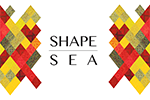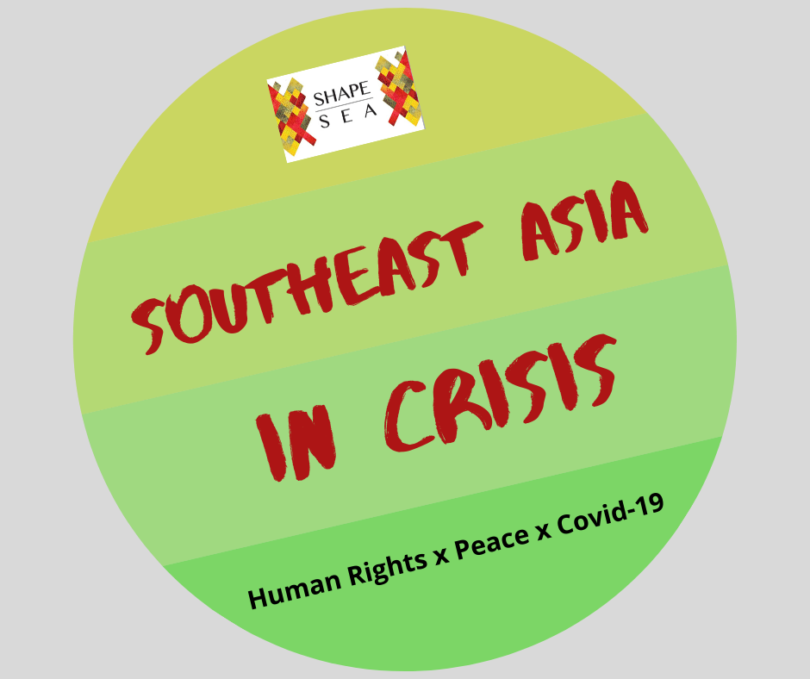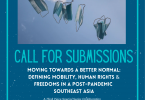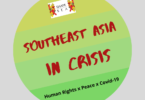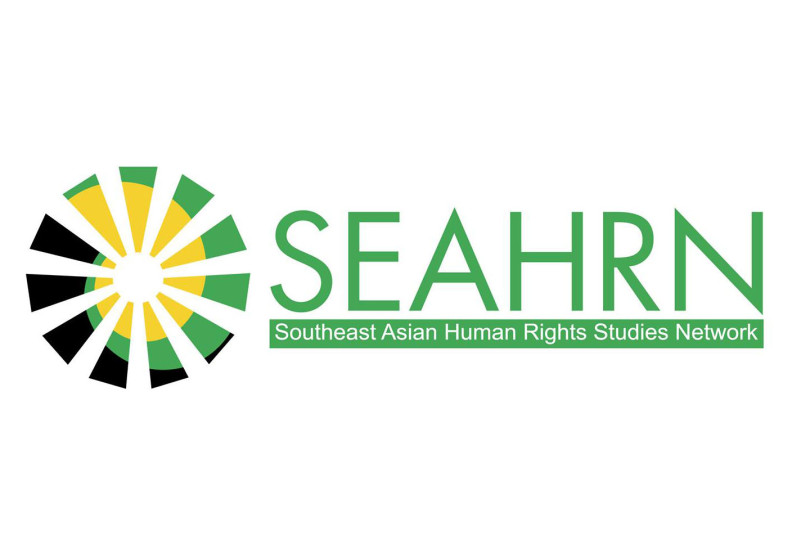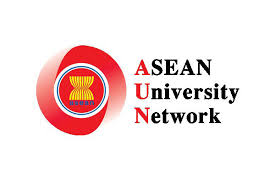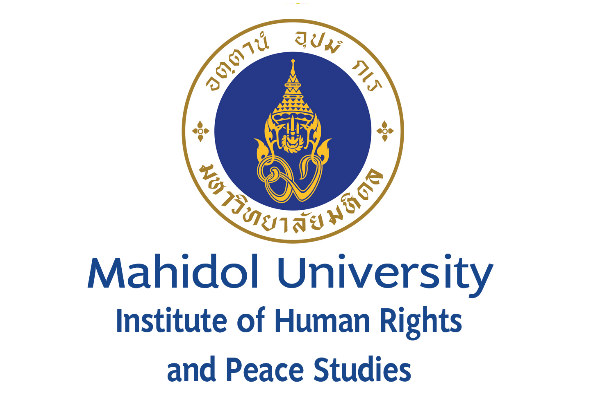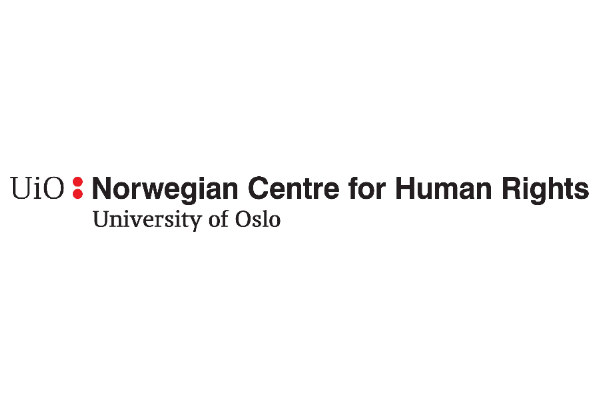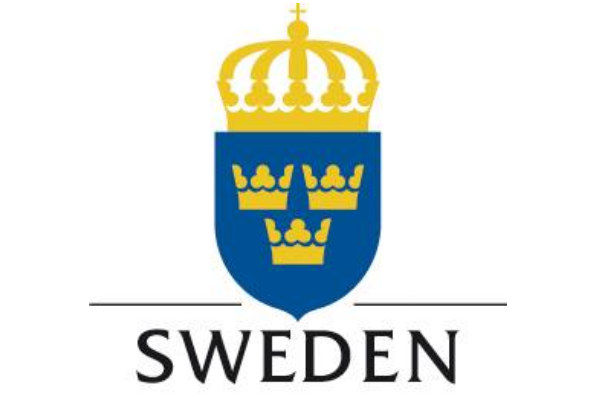Stan Jagger
Dr Stan Jagger’s doctoral research focused on international humanitarian norms and ethnic armed organisations in Myanmar. He has worked as a consultant with local education and research organisations in Myanmar over the last 8 years
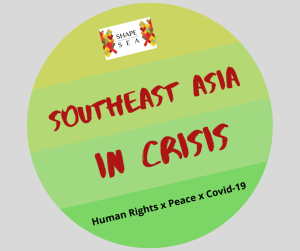 In March 2020, in response to the Covid-19 pandemic, UN Secretary General Antonio Guterres called for a global ceasefire. While the UN is a central pillar of the international system of recognised states, globally, many conflict actors are non-state armed groups. Long-established ethnic armed organisations (EAOs) in Myanmar, such as the Karen National Union (KNU), the New Mon State Party (NMSP), the Restoration Council of Shan State (RCSS) and the Kachin Independence Organisation (KIO), have for decades operated welfare services in their areas of control, including provision of basic healthcare (Davis & Jolliffe, 2016). EAO- associated or accepted civil society organisations (CSOs), with support from a few international NGOs, have also promoted international humanitarian norms to these EAOs who have also engaged with those norms as part of their own legitimacy and nation-building projects (de la Cour-Venning, 2019). For example, EAOs, including the KNU, NMSP, and the Karenni National Progressive Party (KNPP) (although not the KIO thus far), have made Deeds of Commitment (DoC) and enacted policies for the protection of children from the effects of armed conflict and recruitment (Geneva Call, 2016). The DoC are unilateral declarations made by non-state armed groups for compliance with humanitarian norms expressed through the international NGO, Geneva Call. Humanitarian norms in the context of Geneva Calls’ DoCs refer to the international humanitarian law (IHL) and international human rights law (IHRL) standards that are applicable to armed non state actors (Decrey-Warner, Somer, & Bongard, 2012). The EAOs’ existing provision of health services also correspond with IHL obligations for healthcare and protection of civilians in non-international armed conflicts. However, the EAOs’ declarations, policies and actions as demonstrated in the case of the DoC for protection of children, often gain little international recognition or support.
In March 2020, in response to the Covid-19 pandemic, UN Secretary General Antonio Guterres called for a global ceasefire. While the UN is a central pillar of the international system of recognised states, globally, many conflict actors are non-state armed groups. Long-established ethnic armed organisations (EAOs) in Myanmar, such as the Karen National Union (KNU), the New Mon State Party (NMSP), the Restoration Council of Shan State (RCSS) and the Kachin Independence Organisation (KIO), have for decades operated welfare services in their areas of control, including provision of basic healthcare (Davis & Jolliffe, 2016). EAO- associated or accepted civil society organisations (CSOs), with support from a few international NGOs, have also promoted international humanitarian norms to these EAOs who have also engaged with those norms as part of their own legitimacy and nation-building projects (de la Cour-Venning, 2019). For example, EAOs, including the KNU, NMSP, and the Karenni National Progressive Party (KNPP) (although not the KIO thus far), have made Deeds of Commitment (DoC) and enacted policies for the protection of children from the effects of armed conflict and recruitment (Geneva Call, 2016). The DoC are unilateral declarations made by non-state armed groups for compliance with humanitarian norms expressed through the international NGO, Geneva Call. Humanitarian norms in the context of Geneva Calls’ DoCs refer to the international humanitarian law (IHL) and international human rights law (IHRL) standards that are applicable to armed non state actors (Decrey-Warner, Somer, & Bongard, 2012). The EAOs’ existing provision of health services also correspond with IHL obligations for healthcare and protection of civilians in non-international armed conflicts. However, the EAOs’ declarations, policies and actions as demonstrated in the case of the DoC for protection of children, often gain little international recognition or support.
IHL includes obligations for non-state armed groups with implications for provision of health care. Non-state armed groups are specifically recognised in Common Article Three to the four Geneva Conventions of 1949 (Myanmar is a state party) applying to “armed conflict not of an international character” including obligations to protect the “wounded and sick.” Additional Protocol II 1977 to the Geneva Conventions (Myanmar is not a state party), applies specifically to protection of civilians in non-international armed conflicts. Article 18 (2) extends obligations to armed groups and their state military opponents to allow provision of “foodstuffs and medical supplies” to civilian populations by an impartial humanitarian actor. This point is of considerable relevance in Myanmar, in terms of the Myanmar military’s (the Tatmadaw) ongoing denial of access for local and international humanitarian organisations to internally displaced persons (IDP) camps in EAO-controlled areas (Amnesty International, 2017; Human Rights Watch, 2020). While Myanmar is not a party to Additional Protocol II, norms applying to access for humanitarian assistance and the humane treatment of both combatants and civilians, including the sick within the control of armed actors (whether state or non-state) have, more broadly, become an accepted part of customary IHL (Henckaerts & Doswald-Beck, 2005: 306-308).
IHL and IHRL have also sometimes been included within ceasefire or peace agreements between governments and non-state armed groups (Mack & Pejic, 2008). The 2015 Nationwide Ceasefire Agreement (NCA) in Myanmar includes ten signatory EAOs mostly from southeast Myanmar, including the KNU, NMSP and RCSS. However, Myanmar’s largest EAOs in the north and northeast of the country, including the United Wa State Army (UWSA) and the KIO, have not joined the NCA The NCA does not explicitly refer to IHL or IHRL, but it does include EAO and the Tatmadaw obligations for protection of civilians, including access to health care (NCA, Article 9) and provision of humanitarian assistance (NCA, Article 10), which are important considerations in IHL. However, actual political progress with the NCA has been minimal and militarisation in ethnic areas has often increased alongside continued restrictions on humanitarian assistance to non-government-controlled areas by the Tatmadaw. These restrictions impact on health care for internally displaced persons (IDPs) and others living in conflict-affected and EAO-controlled areas.
EAOs, including the KNU, KIO, NMSP, KNPP and RCSS have instituted various measures in response to Covid-19. These have included establishing emergency response committees, closing border crossings that they control, distributing protective equipment, conducting temperature screenings of returning migrants, procuring some limited test kits, and establishing quarantine areas (Htusan, 2020; Hkawng, Fishbein & Nitta, 2020; Mai Hla Aye, Nay Yan Oo, Jolliffe & Batchelor, 2020). These steps demonstrate that, to some extent, those EAOs are addressing IHL obligations regarding assistance and healthcare to civilian populations in their areas. These actions also echo agreements to uphold humanitarian norms some have previously made, such as in relation to protection of children from armed conflict and recruitment. However, EAOs and their associated welfare services have limited capacity to implement Covid-19-related health measures, or access to external assistance to do so. Moreover, despite a claimed Tatmadaw ceasefire (excluding Rakhine state) and establishment of a government-led committee to coordinate with EAOs on Covid-19, the Tatmadaw has obstructed or attacked some EAO health responses. For example, forced closure and burning of KNU Covid-19 screening check points, attacks on RCSS medics while undertaking health checks, and general resistance to EAO measures, such as travel restrictions or border closures, instituted by EAOs in their areas (Progressive Voice, 2020; Karen Peace Support Network, 2020).
To address the scale of the threat to health posed by Covid-19 in Myanmar, Myanmar authorities need genuine political will to coordinate constructively with EAO health providers and allow access for national and international humanitarian organisations to support existing healthcare in EAO-controlled areas. This is especially urgent in EAO areas with IDPs. This would be a vital step to improving the response to Covid-19 in remote conflict-affected areas that hold implications for the health response in the rest of the country. It would also recognise the role played by EAOs in provision of health care to their constituent populations as part of meeting their IHL obligations. Such developments would present a positive step for progressing currently stalled ceasefire negotiations and, in turn, potentially encourage better compliance with IHL obligations by the Tatmadaw, which has been needed long before the present crisis.
References:
Additional Protocol to the Geneva Conventions of 12 August 1949 and Relating to the Protection of Victims of Non-International Armed Conflicts (Protocol II), 8 June 1977.
Amnesty International. (2017). All the Civilians Suffer: Conflict, Displacement, and Abuse in Northern Myanmar. London: Amnesty International.
Article 3, common to the four Geneva Conventions, 1949.
Davis, B., & Jolliffe, K. (2016). Achieving health equity in contested areas of Southeast Myanmar. Yangon, Myanmar: The Asia Foundation.
de la Cour-Venning, A. (2019). Revolutionary Law Abidance: Kachin Rebel Governance and the Adoption of IHL in Resistance to Myanmar State Violence. International Criminal Law Review, 19, 872- 904.
Decrey-Warner, E., Somer, J., & Bongard, P. (2012). Armed Non-State Actors and Humanitarian Norms: Lessons from the Geneva Call Experience. In B. Perrin (Ed.), Modern Warfare: Armed Groups, Private Militaries, Humanitarian Organisations, and the Law (pp. 73-86). Vancouver, Canada: UBC Press.
Henckaerts, J-M,. & Doswald-Beck, L. (2005). Customary International Humanitarian Law Volume I: Rules. Cambridge, UK: Cambridge University Press.
Hkawng J, T., Fishbein, E,. & Nitta, Y. (May 3, 2020). Myanmar’s ethnic conflicts obstruct COVID-19 aid to minorities. Nikkei Asian Review. https://asia.nikkei.com/Spotlight/Coronavirus/Myanmar-s-ethnic-conflicts-obstruct-COVID-19-aid-to-minorities
Htusan, E. (April 21, 2020). Bracing for the coronavirus in Myanmar’s rebel-held borderlands. The New Humanitarian. https://www.thenewhumanitarian.org/news/2020/04/21/Myanmar-coronavirus-Rakhine-Kachin-Karen-conflict
Human Rights Watch. (March 4, 2020). Myanmar: Civilians caught in surge of fighting. https://www.hrw.org/news/2020/03/04/myanmar-civilians-caught-surge-fighting
International Committee of the Red Cross. (2012). The Geneva Conventions of 1949.Geneva, Switzerland: ICRC.
Jolliffe, K. (2014). Ethnic Conflict and Social Services in Myanmar’s Contested Regions. Yangon, Myanmar: Asia Foundation.
Kachin News Group. (May 12, 2020). EAOs Cautious About Collaboration with Govt’s COVID-19 Coordination Committee, Insiders Say. https://kachinnews.com/2020/05/12/eaos-cautious-about-collaboration-with-govts-covid-19-coordination-committee-insiders-say/?doing_wp_cron=1589295186.5095660686492919921875&fbclid=IwAR3esZPVoa3Pan1DngC3DkFDVQboVEMbJhgULgmHWvTMES3QDCbeGv3r_9k
Karen Peace Support Network. (June 2020). Virus Warfare: Burma Army destruction of Karen community defences against Covid-19. KPSN.
Mack, M., & Pejic, J. (2008). Increasing Respect for International Law in Non-International Conflicts. Geneva, Switzerland: International Committee of the Red Cross.
Mai Hla Aye., Nay Yan Oo., Jolliffe, K. & Batchelor, R. (June 1, 2020). Covid-19 response committees in Myanmar. Asia Foundation/ Saferworld.
Nationwide Ceasefire Agreement between the Government of the Republic of the Union of Myanmar and the Ethnic Armed Organizations (2015). Available from, https://peacemaker.un.org/sites/peacemaker.un.org/files/MM_151510_NCAAgreement.pdf
Nyein Nyein. (April 28, 2020). Myanmar sets up Covid19 committee with rebel armies. The Irrawaddy.https://www.irrawaddy.com/news/burma/myanmar-sets-covid-19-committee-rebel-armies.html
Progressive Voice. (June 2020). A nation left behind: Myanmar’s weaponization of Covid-19. Progressive Voice. https://progressivevoicemyanmar.org/wp-content/uploads/2020/06/Final_PV-COVID-19_Report-2020.pdf

